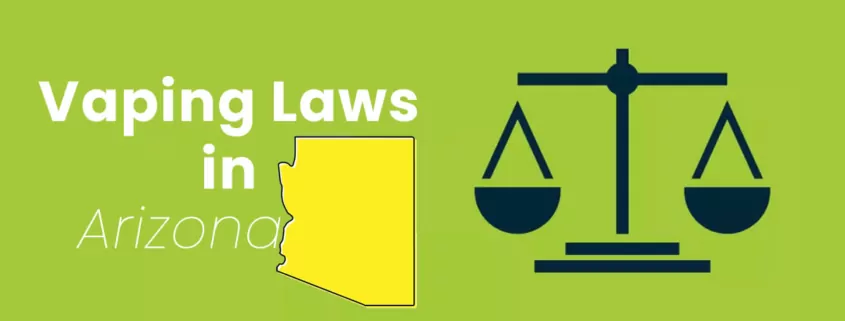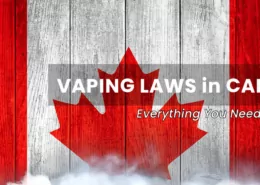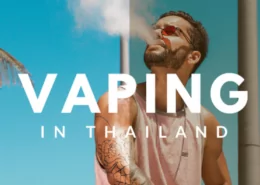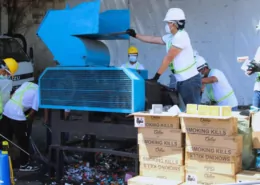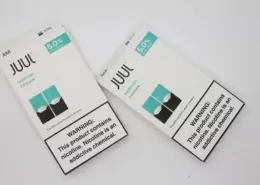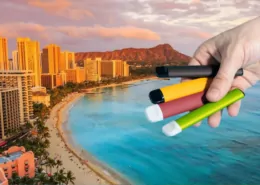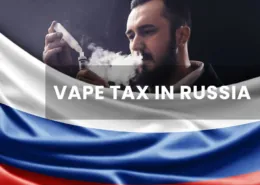Vaping Laws in Arizona – Is it Legal to Vape in Arizona?
updated: May / 2025
Arizona’s approach to regulating vaping products, including e-cigarettes, vape pens, and other electronic nicotine delivery systems (ENDS), is a complex tapestry woven from federal mandates, evolving state statutes, and a patchwork of local ordinances. For consumers, retailers, and manufacturers, understanding this intricate web of rules is crucial for legal compliance and responsible participation in the vaping market. As of mid-2025, the landscape continues to shift, with significant new laws impacting product certification and ongoing debates about age limits and public use.
This guide provides a deep dive into Arizona’s current vaping laws, helping you navigate the regulations with clarity.
The Legal Framework of Vaping Laws in Arizona
At the forefront of Arizona’s vaping regulations is the federally mandated minimum age for purchasing and possessing any tobacco or vapor product.
What Qualifies as a “Vapor Product” in Arizona?
Arizona law defines a “vapor product” as a noncombustible, tobacco-derived product containing nicotine that employs a mechanical heating element, battery, or electronic circuit to heat a liquid nicotine solution. This solution is typically contained in cartridges or other containers and is aerosolized for inhalation. This definition encompasses devices commonly known as e-cigarettes, e-pens, e-pipes, e-hookahs, and e-cigars, collectively referred to as Electronic Nicotine Delivery Systems (ENDS). The definition explicitly excludes any product regulated by the U.S. Food and Drug Administration (FDA) under Chapter V of the federal Food, Drug, and Cosmetic Act as a drug or medical device.
Is it Legal to Vape in Arizona?
Yes, it is legal to vape in the state of Arizona. However, there are certain restrictions that apply to their purchase, plus where and when they can be used.
The Minimum Legal Age for Vaping in Arizona
In Arizona, the legal age to purchase and use vaping products is 21 years old.
Following the federal “Tobacco 21” legislation enacted in December 2019, the minimum age to purchase all tobacco products, including e-cigarettes and other vapor products, is 21 years nationwide. Arizona law aims to align with this federal standard. Selling, giving, or otherwise furnishing a vapor product to anyone under 21 is a petty offense. Similarly, individuals under 21 attempting to purchase or possess these products can face penalties, typically fines (up to $100) or community service. Using a fake ID for such purchases is also a petty crime, potentially resulting in fines up to $500.
However, a point of ongoing legislative discussion in Arizona has been the state’s own statutes. While federal law is supreme, Arizona state law (A.R.S. §13-3622) had previously set the age at 18. This created a period of misalignment where state agencies sometimes felt constrained in enforcing the 21-year-old age limit against retailers selling to those aged 18-20. Proposed legislation, such as SB 1247 (discussed for the 2025 session), has sought to formally align Arizona’s state law with the federal 21-year-old mandate. A contentious aspect of such bills has often been a proposed exemption for active-duty military personnel aged 18 and older. As of mid-2025, the practical reality for retailers and consumers is that 21 is the legally enforceable age for purchasing vape products.
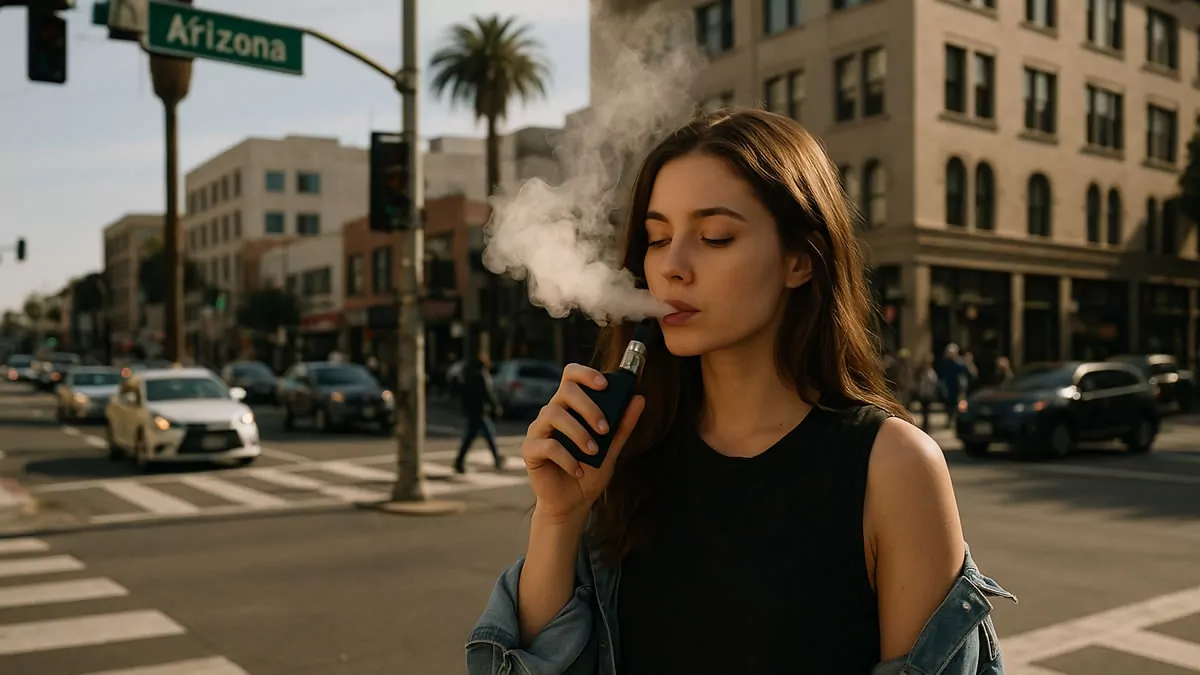
Where Can You Legally Vape in Arizona?
The rules governing where one can legally vape in Arizona are multifaceted and vary significantly depending on the specific location and local ordinances.
Statewide Prohibition Rules
While Arizona does not have a single, overarching statewide ban prohibiting vaping in all public places where smoking is banned, specific statewide restrictions are in place for certain sensitive environments:
- Foster Care Settings: Vaping is explicitly prohibited in foster homes and in any vehicle when a foster child is present.
- State Vehicles: The use of vapor products is not authorized in state-owned or leased vehicles.
- Childcare Facilities & School Grounds: Vaping is generally banned in and around daycares, pre-schools, K-12 school properties, and at school-sponsored events. This extends to higher education campuses as well.
The Smoke-Free Arizona Act
The Smoke-Free Arizona Act (A.R.S. § 36-601.01), passed in 2006, bans traditional smoking in most enclosed public places and workplaces. While the original statute did not explicitly name vapor products, a 2023 amendment reportedly expanded the definition of “smoking” to include these devices. Consequently, this means vaping is often prohibited in the same places smoking is, such as:
- Bars and restaurants (in many, but not all, jurisdictions, depending on local interpretation and specific exemptions for adult-only venues).
- Indoor workplaces.
However, the application to vaping isn’t always uniform statewide, leading to the importance of local rules.
Local Ordinances in Arizona
Crucially, Arizona’s 2023 tobacco licensure law, while setting some state standards, allows municipalities and counties to enact their own, often stricter, ordinances regarding the public use and retail density of vaping products. This has led to a “patchwork” of regulations across the state. Cities and counties with notable vaping restrictions include:
- Tempe: Prohibits vaping in bars, restaurants, and enclosed workplaces. Also restricts vape shops within 1,000 feet of schools.
- Phoenix: Workplaces must be smoke-free and vapor-free. Vaping is prohibited in City buildings, vehicles, and work areas, with a 20-foot smoke-free zone around entrances, windows, and ventilation systems. Outdoor vaping may be permitted in designated smoking areas during breaks, at least 20 feet from restricted zones.
- Mesa: Vaping is banned in public gathering places (except designated bar areas), and all workplaces must be vapor-free and smoke-free.
- Coconino County, Flagstaff, Cottonwood, Douglas, Clarkdale, Chandler, Goodyear, and Gilbert are other jurisdictions mentioned as having various local restrictions, some including “Tobacco 21” ordinances predating full state alignment or specific public place bans.
The key takeaway for vapers is to always check for local signage and be aware of specific city or county ordinances, as these can be more restrictive than statewide provisions. Violations can lead to fines, typically starting around $50 or $100.
Where Vaping May Generally Be Permitted:
- Private residences (unless used for commercial purposes like a licensed daycare).
- Hotel and motel rooms designated for vaping/smoking (if allowed by the establishment’s policy).
- Certain outdoor areas, unless specifically prohibited by local ordinance or the property owner.
- Dedicated vape shops that meet specific criteria (e.g., deriving a significant portion of revenue from vape sales and restricting minor entry, though the Smoke-Free Arizona Act’s application here can be nuanced).
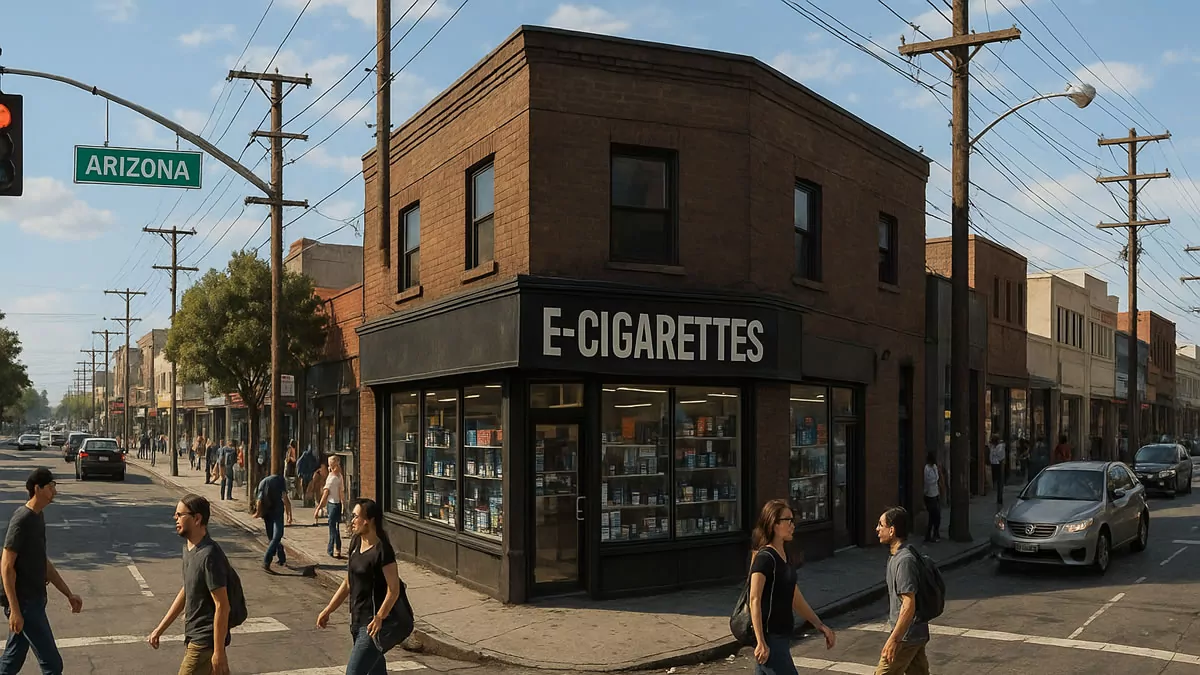
Regulations for Retailers and Manufacturers
The sale of vaping products in Arizona is subject to both retailer responsibilities and increasingly stringent manufacturer requirements.
Retailer Licensing and Responsibilities
As of 2023, retailers selling any tobacco products, which includes vapor products under Arizona’s definition, must obtain a tobacco license from the Department of Liquor Licenses and Control (DLLC). Previously, no specific state license was solely for vaping products, but retailers needed general business and Transaction Privilege Tax (TPT) licenses. The new tobacco licensure law also preempts local governments from enacting sales or marketing regulations stricter than state standards, with exceptions for public use and retail density rules.
Key responsibilities for retailers include:
- Strict adherence to age verification (21+).
- Compliance with all state and local sales regulations.
- Ensuring products sold meet new manufacturer certification requirements (see SB1212 below).
Online sales of vaping products are permissible but remain subject to rigorous age verification processes. Vending machine sales are heavily restricted, generally only allowed in adult-only venues where entry is restricted to those 21 and older.
Manufacturer Certification: The Impact of Senate Bill 1212
A landmark regulatory shift for the vaping industry in Arizona is Senate Bill 1212 (SB1212). Effective from 2024 (with key dates like August 1, 2024, for initial certification and October 1, 2024, for the directory publication), this law mandates that manufacturers of vapor products intending to sell their items in Arizona must certify with the Arizona Attorney General (AG). This certification, made under penalty of perjury, must confirm that their products either:
- Have received marketing authorization from the U.S. Food and Drug Administration (FDA), OR
- Were on the market as of August 8, 2016, had a Premarket Tobacco Product Application (PMTA) filed with the FDA by September 9, 2020, and that application remains under substantive FDA review or is the subject of ongoing litigation.
The AG is tasked with establishing and maintaining a public directory of all certified vapor products. Key aspects include:
- Annual Recertification: Manufacturers must recertify their products annually.
- Penalties for Non-Compliance: Selling or offering for sale uncertified products in Arizona can result in a daily civil penalty of $500 per product per day. False representation during the certification process is a class 3 misdemeanor.
- Contraband Status: Products removed from the directory or found to be uncertified become contraband after 21 days and are subject to seizure, forfeiture, and destruction.
- Enforcement Funding: A Vapor Product Fund, financed by certification fees, supports enforcement efforts.
SB1212 aims to align the Arizona market more closely with federal FDA oversight and is expected to significantly impact the availability of certain products, particularly many flavored disposable vapes and bottled e-liquids that have not secured or are unlikely to secure FDA marketing authorization.
Taxation, Flavors, and Medical Use
Taxation of Vaping Products
Arizona imposes a tiered excise tax structure on vaping products:
- $0.55 per milliliter for nicotine-containing e-liquids.
- $0.09 per milligram of nicotine for closed-system cartridges (pods).
This contrasts with some earlier information suggesting no specific vape tax, indicating a policy evolution. These taxes are typically collected at the distributor level but are often passed on to consumers, impacting retail prices.
Flavor Restrictions
Arizona primarily follows federal regulations regarding flavored vaping products. Federal law, as enforced by the FDA, restricts the sale of flavored pre-filled cartridge-based or pod-based e-cigarette products (other than tobacco and menthol flavors). Arizona does not currently have additional statewide bans on other types of flavored vape products, such as bottled e-liquids or disposable vapes. However, the implementation of SB1212, requiring FDA approval or active review for products to be legally sold, will indirectly lead to fewer flavored products on the market if those flavors lack the necessary FDA authorization status. Some local jurisdictions may also have, or be considering, their own flavor restrictions.
Vaping and Medical Marijuana
Arizona permits the use of medical marijuana for qualifying patients under the Arizona Medical Marijuana Act. Vaping devices are a common and permissible method for consuming prescribed medical marijuana extracts. This use is generally allowed in private locations but remains prohibited in public spaces, similar to restrictions on smoking marijuana. Patients must obtain physician certification and purchase products from state-licensed dispensaries.
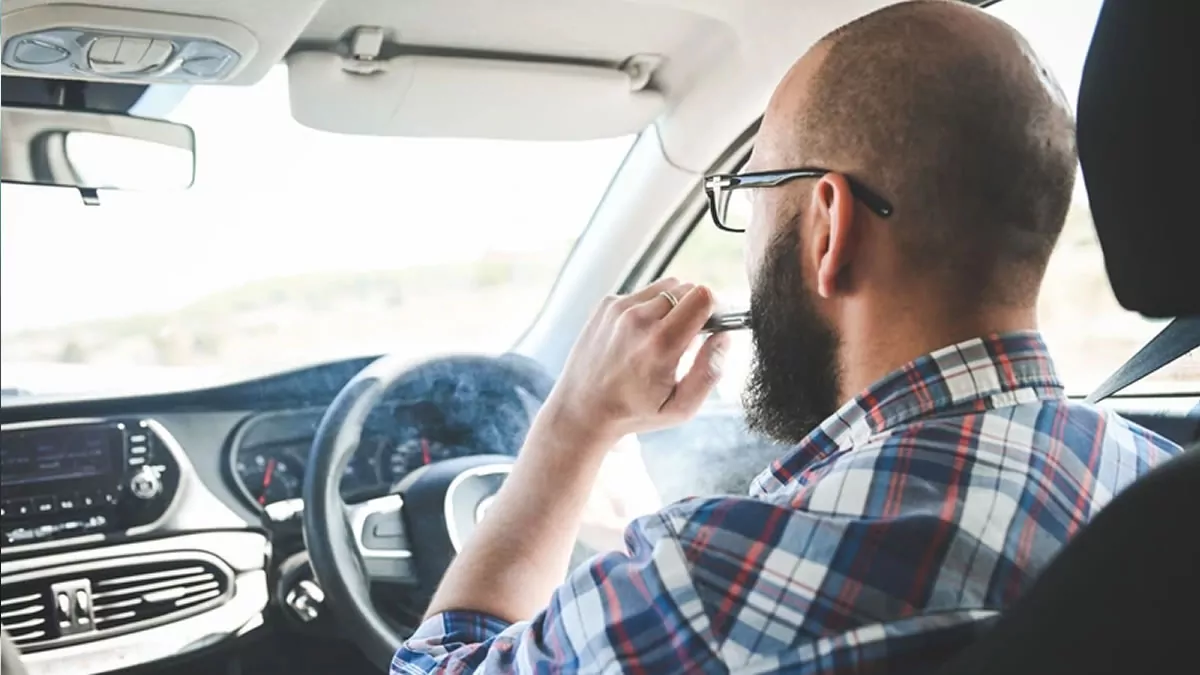
Vaping While Driving in Arizona
There are no statewide laws prohibiting vaping while driving in Arizona. However, it’s crucial to exercise caution and prioritize safety while using vaping devices in vehicles. Distracted driving can lead to accidents and serious consequences.
Is Vaping While Driving Legal in Arizona?
Currently, it is legal to vape and drive in Arizona. Nevertheless, it is advisable to only do so when it is safe and does not distract you from the road.
It is essential to consider factors such as road conditions, the need for both hands on the wheel, and the possible obstruction of visibility caused by vape clouds before deciding whether or not to vape while driving.
Can You Vape in a Car with a Child in Arizona?
No, it is illegal to vape in a car when anyone under the age of 18 is present. Despite being prohibited, law enforcement officials can only cite you for this offense if they notice it while stopping you for another reason.
To ensure the safety and well-being of children, it is recommended that you refrain from vaping in the car while they are present. Adhering to this law can also help you avoid any potential legal complications.
Youth Vaping Concerns
Public health officials and lawmakers in Arizona remain deeply concerned about the prevalence of vaping among youth. Statistics have indicated that a significant percentage of Arizona high school students have tried vaping, and research often suggests that teens who vape are more likely to transition to smoking traditional cigarettes. The appealing flavors of many vaping products are frequently cited as a key factor in youth initiation. Consequently, the Arizona Attorney General’s office has been active in advocating for stronger federal action and supporting state-level measures like SB1212 to curb youth access and appeal.
Conclusion:
Arizona’s vaping laws reflect a dynamic and evolving approach, attempting to balance adult consumer choice with significant public health priorities, particularly the prevention of youth nicotine addiction. The legal age to purchase and use vape products is firmly 21, aligning with federal law. While there isn’t a blanket statewide ban on vaping in all public areas, restrictions in specific sensitive locations are in place, and a complex patchwork of local ordinances often extends these prohibitions further, mirroring traditional smoking bans.
The most impactful recent development is SB1212, which imposes stringent certification requirements on manufacturers, tying product legality in Arizona to FDA authorization or active review. This, combined with existing taxation on e-liquids and pods, and ongoing local efforts to control retail density and potentially flavors, creates a challenging but increasingly defined market. For consumers, retailers, and manufacturers involved with vaping in Arizona, staying diligently updated on these federal, state, and local regulations is not just advisable—it’s essential for ensuring compliance, making informed choices, and navigating the future of vaping in the Grand Canyon State.
Ecigator is one of the well-known vape brands spun off from FM Technology Co., Ltd, it’s an ISO-certified disposable vape manufacturer for OEMs, ODMs, and OBM since 2010. The founder team comes from top firms with more than 10 years of experience in the vaping industry and has devoted thousands of hours to providing users with a better and better experience.
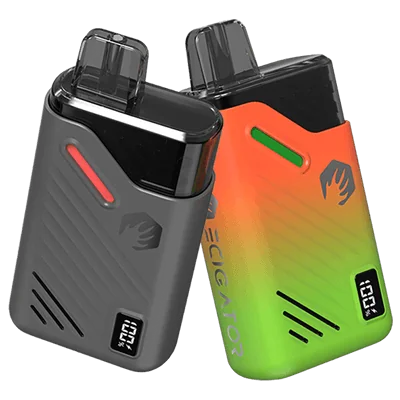
18K Disposable Pod Kit
Disposable Pod Kit – 18ml changeable pod with 650mAh rechargeable battery.
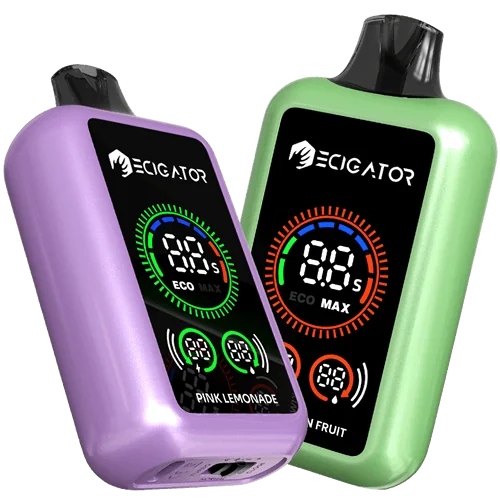
20K with Large Screen
20000 Puffs Disposable Vape with large screen. Normal and Boost working modes.
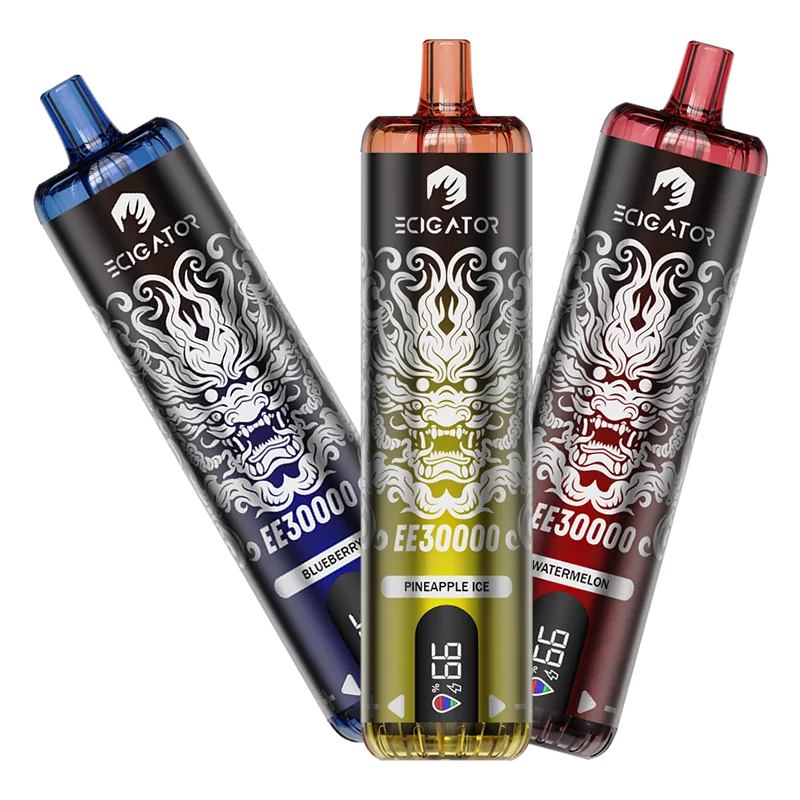
30K DTL Disposable
30K Puffs DTL(Directly to Lung) disposable vape with airflow control and screen.
FAQs
The legal age for purchasing and using vaping products in Arizona is 21 years old.
While there isn’t a specific state-wide ban on vaping in public spaces, some municipalities and private entities have implemented their own restrictions. It’s essential to check local rules and posted signs before vaping in public areas.
Each restaurant and bar can decide whether to allow vaping on their premises. Some establishments permit vaping in designated areas, while others have implemented full bans. Always check the rules before using a vaping device at these locations.
Yes, online sales of vaping products are allowed in Arizona. However, customers must prove they are at least 21 years old through age verification processes.
Vaping on school grounds, including K-12 schools, colleges, and universities, is strictly prohibited in Arizona. The state has implemented these regulations to protect the health and well-being of students and staff.
- Bestselling Vapes in UK After Disposable Ban: What to Stock 2025 - August 8, 2025
- Argentina Debates Stricter Vape Laws Amid Prohibition Failures - August 8, 2025
- Nigeria Advocacy Group Urged to Hike Tobacco & Vape Tax by 100% - August 8, 2025

